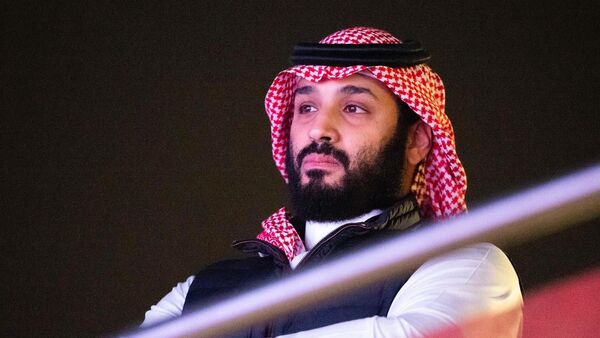Haaretz has quoted Israeli-American billionaire Haim Saban as saying that Saudi Arabian Crown Prince Mohammed bin Salman recently told him that Riyadh cannot join the United Arab Emirates (UAE) and Bahrain's move to normalise relations with the Jewish state because it might end up with the crown prince being "killed by Iran, Qatar", or his "own people". The Crown Prince has not commented on the Haaretz report and Riyadh's plans pertaining to its future ties with Israel yet.
According to the newspaper, Saban revealed Mohammed bin Salman's remarks during an interview with Democratic Congressman Ted Deutch that took place on the sidelines of an online campaign event named "Israel’s Security and Prosperity in a Biden White House" on Wednesday.
The billionaire, known to be an avid Democratic Party donor, also told Deutch that "all of the credit" related to signing a peace deal between Israel, the UAE, and Bahrain "should be going to [President Donald Trump's senior adviser and son-in-law] Jared Kushner and [his aide] Avi Berkowitz, who worked really hard on it".
Saban's reported remarks come about a week after US Secretary of State Mike Pompeo urged Saudi Arabia to follow in the footsteps of Abu Dhabi and Manama and normalise its relations with Israel.
Pompeo also praised Riyadh's help in bringing Tel Aviv, Abu Dhabi, and Manama together, stopping short, however, of revealing the nature of this support.
Inking of Abraham Accords
This followed Bahrain and the UAE officially establishing diplomatic ties with Israel by signing the Abraham Accords on 15 September in Washington, after the Trump administration mediated the historic agreement.
The two countries, the first Gulf states to do so, expressed readiness to cooperate with the Jewish state in an array of sectors, from culture to regional security, in exchange for Israel putting its plans to extend sovereignty over parts of the West Bank on hold. Bahrain and the UAE became only the third and fourth Arab nations to normalise relations with Israel, after Egypt in 1979 and Jordan in 1994.
Saudi Arabia has neither criticised nor supported the Abraham Accords, which were strongly opposed by Palestinian and Iranian leaders. Riyadh was also behind a 2002 initiative stipulating that Arab states should only normalise ties with Israel after Tel Aviv agrees to a two-state solution with the Palestinians and returns to its pre-1967 borders.
The accusations followed Iranian Foreign Minister Mohammad Javad Zarif stressing that Tehran has always been ready to hold direct talks with Riyadh or negotiating through intermediaries, and that the two countries "do not have any choice but to talk to each other".






